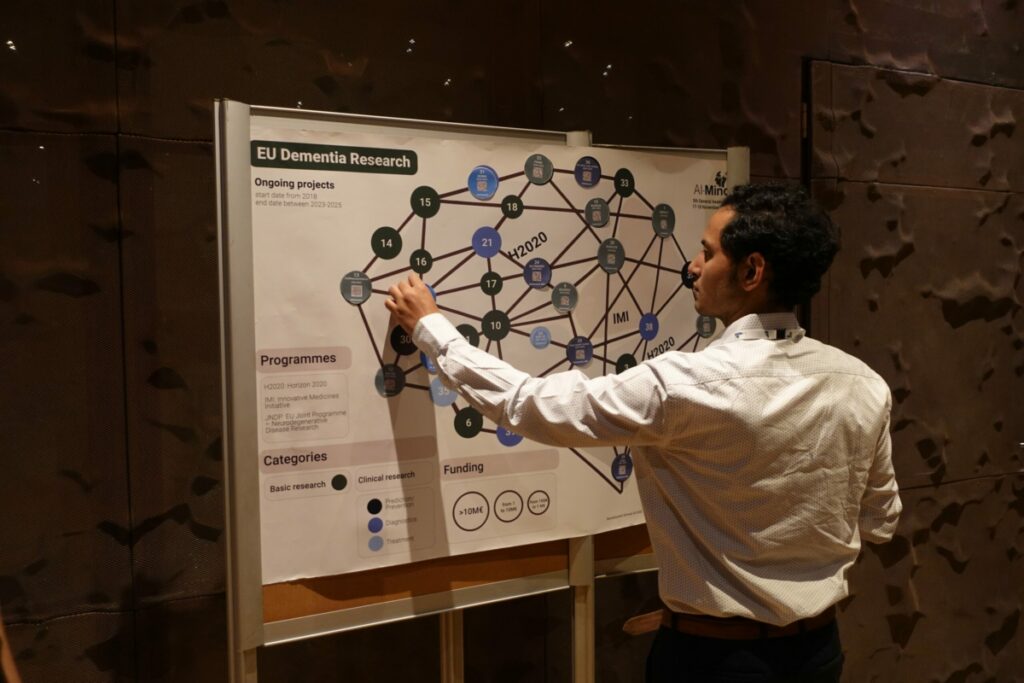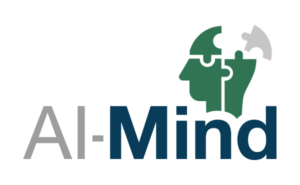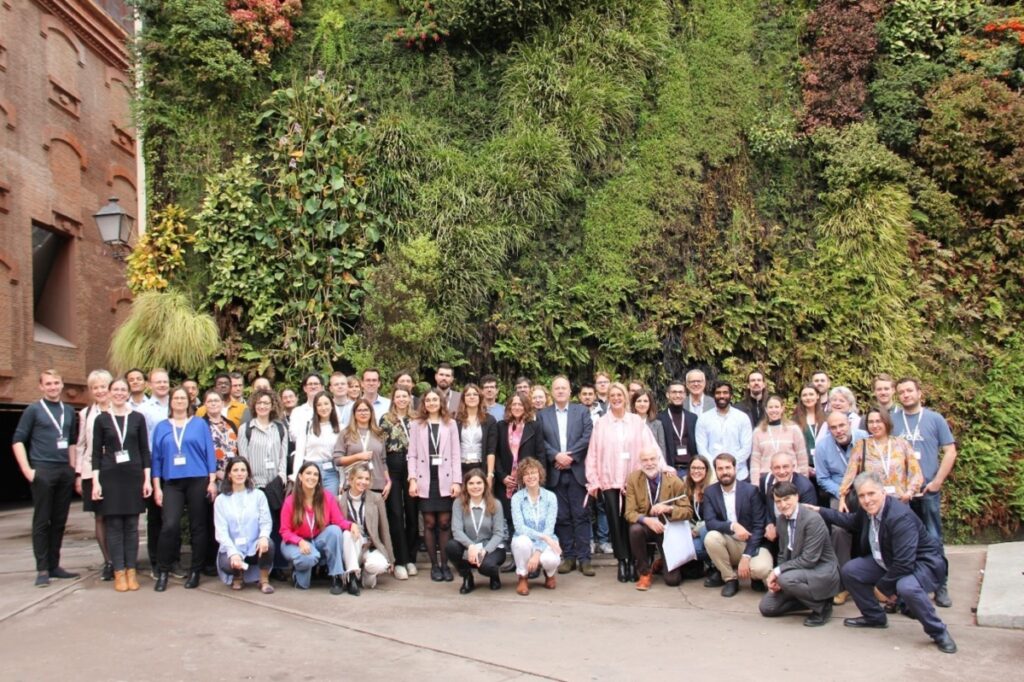Highlights from the 5th AI-Mind General Assembly meeting
This autumn has been full of events for the AI-Mind consortium and November is no exception. The 5thAI-Mind General Assembly (GA) was officially opened on 17 November at the CaixaForum, a cultural centre in Madrid, Spain. The meeting was held as a hybrid event, allowing participants to join either in person or online. This made the GA a great networking opportunity for all the AI-Mind consortium members and external guests to discuss the progress of the AI-Mind project and learn from each other.
Over two days, around 60 partners attended the meeting on-site, and more followed the sessions online. More than 20 presentations from partners and three lectures made the agenda of the meeting truly exciting, covering all the work packages (WPs) and research topics of the project.
THE FIRST DAY OF THE 5TH #AIMINDGA
The event started with an insightful keynote address from Mr. Peña (Lurtis) and Prof. Maestú (UCM). In the welcoming speech, they emphasized the importance of such meetings and shared their expectations of the upcoming sessions.
The opening was followed by a presentation from the project coordinator Dr. Haraldsen (OUS), who gave an overview of the work progress and uncovered the key challenges and achievements within the WPs.

Dr. Ira Haraldsen
“Each of us is contributing now to European society by collecting data that can further benefit other research groups to tackle the dementia challenge. We should be proud of our work!” – Dr. Haraldsen stated.
Up next, Ainar Drews (UiO) navigated participants through tasks and responsibilities related to data integration with EBRAINS as part of the Health Data Cloud service.
Then Dr. Cindy Birck (AE) and Dr. Jeanette Muller (accelCH) held an exciting session on the dementia research landscape presenting various projects relevant to the AI-Mind consortium. During the coffee break, partners were invited to participate in the interactive exercise and discover the projects from the landscape.

Dr. Jeanette Müller

Dr. Cindy Birck

The second session of the first day dedicated to clinical implementation was filled with presentations from clinical partners on enrolment monitoring, challenges and retention strategies.
Further, Ana Diaz Ponce (AE) and Daniel Irabien (TU) provided an overview of the progress within WP1. Specifically, Ana focused on the attitudes toward artificial intelligence (AI) and the use of AI-based dementia risk prediction tools, while Daniel presented the plan for the development of the Best Practices Guidelines in the scope of AI-Mind.
“The best practice guidelines are a living document” – Daniel Irabien concluded.

Robin Vermeulen
Following this, Robin Vermeulen (Radboudumc) shared the results of the discrete choice experiment and the time trade-off study conducted within the WP6, Health Technology Assessment (HTA). The research group aimed to quantify the impact that receiving a dementia risk prediction has on perceived quality of life. The presentation evoked huge interest among the partners and became the topic of discussion even during the coffee break.
After a short break, Michael Hönger (accelCH) opened an Innovating Forum to discuss the potential innovation evolving within the project and collect ideas from partners on innovations. The final speaker in the session was Joanna Plesniak (accelCH), who explained the importance of communication in a project and how to disseminate results while complying with Open Access.The key outreach activities for 2023 were also presented.

Joanna Plesniak
“We are not doing it solely for researchers and clinicians, we are doing it for people – to give them a chance to respond to the dementia challenge as early as possible.”
With such inspirational words, Dr. Haraldsen summarised the first day of the GA.
THE SECOND DAY OF THE 5TH #AIMINDGA
The second day of the meeting started with two presentations delivered by invited speakers on the following topics:
Electrophysiology of Alzheimer’s Disease – Prof. C.J. Stam (Amsterdam UCM, Netherlands)
· Electrophysiology of other types of dementia (non-AD) – Prof. James Rowe (University of Cambridge, United Kingdom)
The meeting continued with the series of presentations dedicated to WP2 (Data management and features extraction) held by Dr. Ricardo Bruña (UCM), Francesca Miraglia (Neuroconnect), Joonas Haakana (AALTO), and Eva Askvik (OUS). The partners discussed a wide range of topics, from feature extraction to functional brain network characteristics in mild cognitive impairment (MCI). The final presentation was followed by a discussion session, which enabled all the participants to cover the topics more in-depth.
The afternoon programme began with a series of presentations on Deep learning (DL) and AI modelling, delivered both by professors and PhD students participating in the AI-Mind project.

Francesca Miraglia

Dr. Ricardo Bruña

Dr. Susanne Merz
Afterward, Victor Ayllón (Lurtis) and Jorge Acosta (UCM/UPM) demonstrated the prototype of the AI-Mind interactive platform with all of the features which will be further available for the potential users. Then Dr. Luis Peña (Lurtis) talked more about the human-centric approach in the development process and the importance of the user experience.
In the final presentation Andreia Cruz (accelCH) gave an in-depth overview of the WP8, focused on the project and innovation management. The upcoming deliverables and the progress made by the consortium within the first 21 months of the project were addressed.

Victor Ayllon

Dr. Luis Peña

Andreia Cruz
The AI-Mind meeting was closed with a fruitful discussion that revolved around the lecture given by a special guest:
- How AI and neuroscience drive each other forward? – Prof. Ole Petter Ottersen (Karolinska Institute, Sweden)
We express gratitude and appreciation to the AI-Mind management support team, the meeting organisers, the invited speakers, and all participants who contributed to the 5th AI-Mind General Assembly and made it a truly memorable event!

